Police At Checkpoints, Events Scrapped As Virus Fears Hit Italy
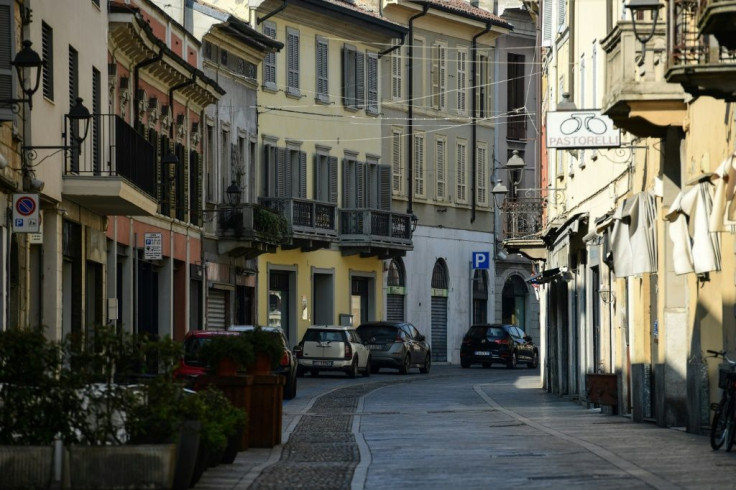
Police patrolled perimeters of virus-stricken town in northern Italy Sunday as tens of thousands of people were placed under lockdown and public events cancelled to stem Europe's worst outbreak of the new coronavirus.
An elderly cancer patient became the third person who has tested positive for the virus to die since Friday in the country, with 149 confirmed cases nationwide.
The mounting number of infections has sparked fears of further contagion and prompted the government to effectively quarantine 11 villages.
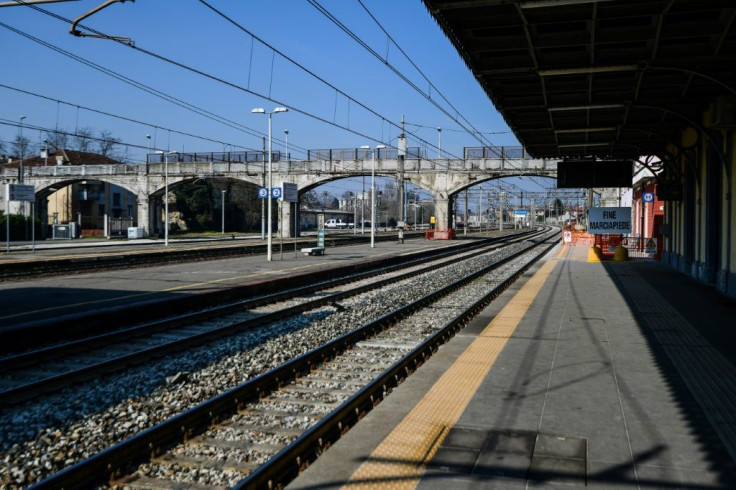
"Virus -- Northern Italy under Siege," read Sunday's headline in the Il Fatto Quotidiano daily, as television stations delivered a steady stream of images of masked locals and hospital workers in protective suits. "Virus Paralysis," read La Repubblica.
Health officials in the Lombardy region, the centre of Italy's coronavirus outbreak, said an elderly woman being treated in hospital for cancer who had tested positive for the virus had died.
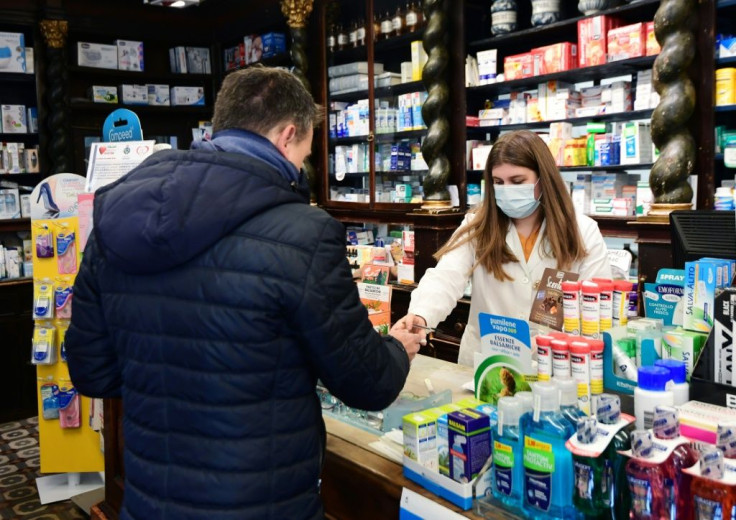
If coronavirus is determined to be the cause of death, the woman will be the third person in Italy to have died from COVID-19, the official name of the disease that was detected in China late last year and has since spread across the world.
More than 50,000 people in 11 Italian towns have been ordered not to leave their areas, most of them around the town of Codogno, about 70 kilometres (43 miles) southeast of Milan.
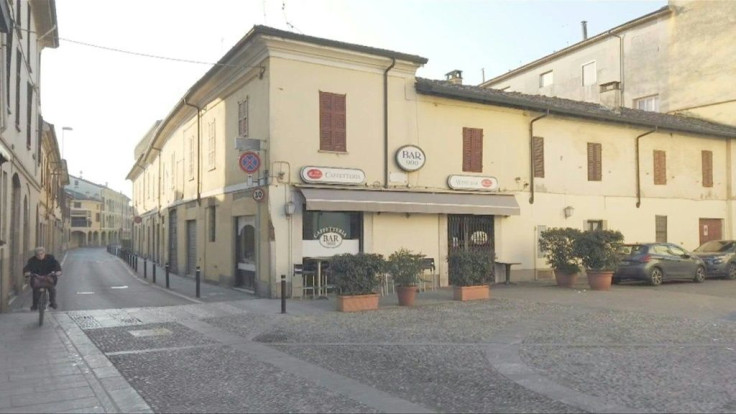
Italian Prime Minister Giuseppe Conte said Saturday that the lockdown could last weeks, enough time for potential infections to incubate.
A policewoman in charge of a checkpoint outside Codogno said the area under quarantine would be limited to "a fairly small perimeter to begin with, the towns affected by the epidemic, but it might be widened later."
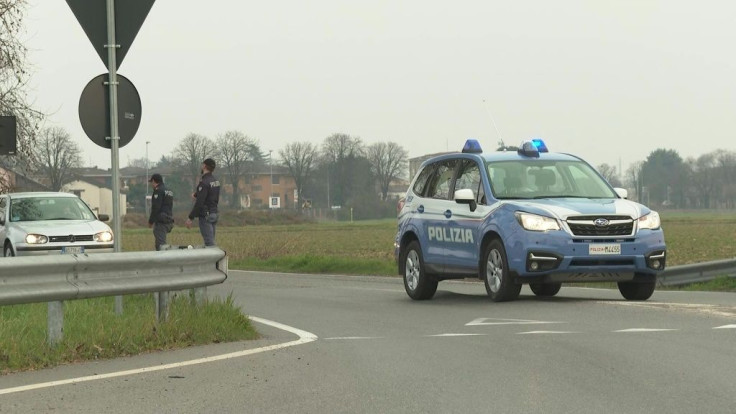
In Casalpusterlengo, police checkpoints stopped vehicles in both directions on the road that leads to Codogno, 10 minutes away.
"We're going to quickly enforce a total blockade," said one police officer.
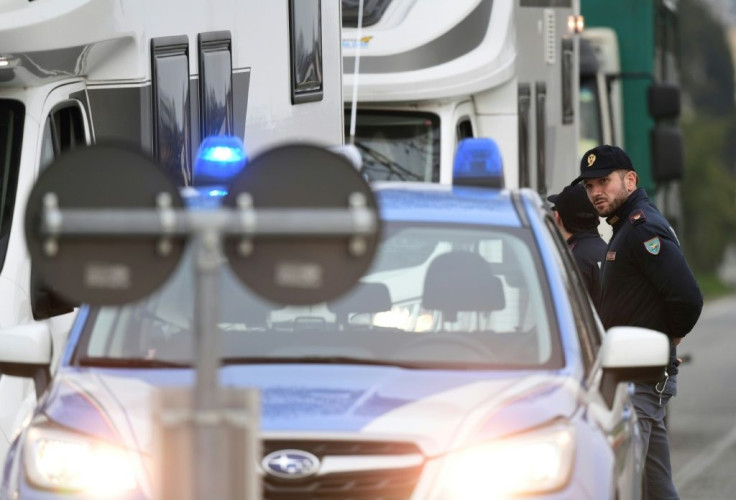
"We're letting people know that if they come in, they won't be able to leave. I have to admit they're taking it pretty well, you can see they were expecting it, that they were prepared in some way."
Earlier in the day, queues formed at supermarkets as anxious people, many wearing surgical masks, stocked up on provisions, fearing a long period of isolation.

"Don't push! We want to serve everyone but not all at once," a store manager told about 50 people waiting with shopping trolleys outside.
"We might not have the same quantities of products as usual, but we have enough for everyone."
In Venice, the exuberant annual carnival that attracts tourists from all over the world was cancelled from Sunday night, according to the region's president Luca Zaia. It had been scheduled to continue through Tuesday.
Milan fashion shows were also affected, and schools throughout the Lombardy region are to be closed for a week.
In Casalpusterlengo, the Lidl grocery store allowed shoppers to enter in groups of 40.
"It's inhuman, fighting for four sandwiches is simply disgusting," complained a man named Sante, who sat in his car outside and said that if he could, "I would go to Rome and kick them in the butt."
The policewoman told AFP that teams had been sent in from Bologna, Turin and Genoa to help local law enforcement.
The government said those who violated the quarantine could face fines and even three months in jail.
It has also said the army was prepared to step in if needed to enforce the perimeter.
On Sunday, the head of the civil protection department, Angelo Borrelli, told a news conference that thousands of beds were ready in military barracks or hotels to house quarantined or sick individuals, if needed.
To date, the virus has killed more than 2,400 people worldwide, with roughly 80,000 infected, for the most part in China.
© Copyright AFP {{Year}}. All rights reserved.





















